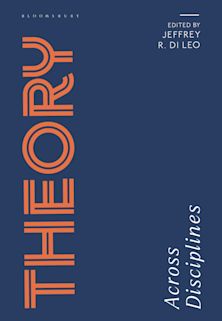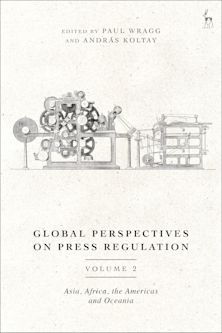- Home
- ACADEMIC
- Film & Media
- Media Theory
- Negotiating Group Identities in Multicultural Germany
Negotiating Group Identities in Multicultural Germany
The Role of Mainstream Media, Discourse Relations, and Political Alliances
Negotiating Group Identities in Multicultural Germany
The Role of Mainstream Media, Discourse Relations, and Political Alliances
For information on how we process your data, read our Privacy Policy
Thank you. We will email you when this book is available to order
You must sign in to add this item to your wishlist. Please sign in or create an account
Description
This book scrutinizes the media portrayals of (ethnic/religious) minorities in Germany, encompassing the fields of public affairs, media effects, political communication, multiculturalism, populism in the media and politicized uses of collective identities. It compares the political discourse (Bundestag plenary protocols) with the mainstream discourse (mainstream press) in Germany over the sample period of 2009-2015, and explores a multi-layered debate from different perspectives by combining quantitative and qualitative methodologies. Moreover, this research intends to detect, analyze and connect the dots between recurrent themes, news stories, actors, events and ideologies within the delicate debate on minorities in Germany’s multicultural society. The mixed-methods approach includes content analysis, template analysis, relational discourse analysis, latent class cluster analysis and multinomial logistic regression. The interdisciplinary approach of this research presents various aspects of social sciences, such as media and communication studies (agenda-setting theory), social psychology (social-identity theory), media sociology (discursive power), political science (right-wing populism) and anthropology (race and ethnicity). This extensive research is meant to contribute to existing political efforts and academic studies, in order to fully grasp the dynamics of German immigration and integration policies.
Table of Contents
Chapter 1: The Current State of Affairs in Germany’s Multicultural Society
Chapter 2: Theoretical Grounding and Methodologies
Chapter 3: Recent Trends in German Integration Discourse: From the Sarrazin Controversies to the Decline of Political Correctness
Chapter 4: Leitkultur and Discourse Hegemonies: German Mainstream Media Coverage on the Integration Debate between 2009 and 2014
Chapter 5: Leitkultur 3.0: A Latent Class Cluster Analysis of German Integration Discourse within Bundestag Plenary Protocols and Mainstream Newspapers
Chapter 6: Wutbürger in the Lügenpresse: A Relational Discourse Analysis of the New German Populism in Mainstream Newspapers (2013–2015)
Chapter 7: Conclusion
Product details
| Published | Oct 16 2017 |
|---|---|
| Format | Ebook (Epub & Mobi) |
| Edition | 1st |
| Extent | 263 |
| ISBN | 9781498557016 |
| Imprint | Lexington Books |
| Illustrations | 2 Charts, 36 Tables |
| Series | Communication, Globalization, and Cultural Identity |
| Publisher | Bloomsbury Publishing |
About the contributors
Reviews
-
Deploying an impressive combination of methods, this study examines discursive struggles in German newspapers as well as in the German parliament. While some commentators praise (or loathe) Germany for its ‘political correctness’ and welcoming attitude, David Abadi demonstrates decreasing inhibitions to associate Muslims, ethnic minorities, and refugees with extremism, criminality, or terrorism.
Justus Uitermark, University of Amsterdam
-
This book is a stimulating and intelligent analysis of the portrayal of migrants in Germany. The discrepancy between a more rational debate in the German legislature and executive and a somewhat sensationalist discourse in the media based on news values is dysfunctional—what we need is a reorientation of mass media towards normative goals of the rational public sphere.
Kai Hafez, University of Erfurt, Germany



































